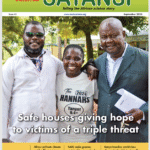Debunking misinformation in health reporting
By Christine Ochogo I christawine@gmail.com
Information is power, as the saying goes. However correct and factual information in health reporting is what should be consumed in a bid to save lives.
It is therefore important to be cautious when handling information because as much as it is meant to enlighten people on a particular health subject matter, it that can also be used as a weapon for driving various agenda that is not for public good.
With the emergence of coronavirus that has caused Covid-19 pandemic, journalist have turned to health journalism to keep up pace in reporting its development since major stories being carried in the news media today is on COvid-19.
However, most journalist are not endowed with proper training on matters health and have been endowed with public health concepts but are forced to report on Covid-19.
This has created room for misinformation since people are coming up with their own views in regards to the novel coronavirus pandemic that has affected the globe.
In a write up published in forbes, dated August 09, 2020, a contributor mentioned that it is therefore necessary that journalist be taken through epidemiology training to be able to handle stories on covid-19 in a bid to fight misinformation.
By definition, epidemiology is the study and analysis of the distribution, patterns and determinants of health and diseases and other factors related to health.
Most often we journalist are bombarded with too much information that is not necessary yet what we are looking for is the missing facts that is not available at our disposal.
In dissemination of information there are three types of information disorder which include misinformation, disinformation and mal-information.
Misinformation has been described as false information shared with no intent to harm. It is usually spread unknowingly and it contains viral messages that are shared quickly without fact checking.
Disinformation on the other hand has been described as deliberate false information that is misleading and knowingly shared to cause harm.
Mal-information is when genuine information is shared to cause harm to a person, social group, organization or a country to a person, so, often by moving private information into the public sphere.
Journalist covering health should be fast in spotting and debunking health misinformation by questioning the content and not just consuming information at face value.
Take an example of a recent statement by a USA based doctor, Dr. Stella Immanuel , who come out to claim that hydroxychloroquine, which is an anti-malaria drug, can cure Covid-19 yet there is no scientific approval to that effect.
Erick Mugendi, Communication Managing Director at PesaCheck, an organization that fights against misinformation, stressed that false information in health reporting can lead to death if mishandled or not debunked in time.
In his explanation during a media online café organized by Media for Environment Science Health and Agriculture (MESHA) he mentioned that fact checking helps in increasing the availability of factual information for under resourced health topics such as Neglected Tropical Diseases, Reproduction Health among others.
“Debunking misinformation can be done by countering the false information with proper and factual content that can help save lives,” Mugendi stressed.
Sometimes people loose trust because of evolving rereign in information and therefore journalist should develop a tentative tone when doing reporting. This will keep the public on track and be well informed.
“Initially when covid-19 pandemic broke, the public was being told not to wear facemasks, however as the virus evolved, World Health Organization approved the usage of face mask saying it has the ability to prevent the spread of the virus,” Mugendi said.
The writer is a freelance journalist based in Nairobi, Kenya.






